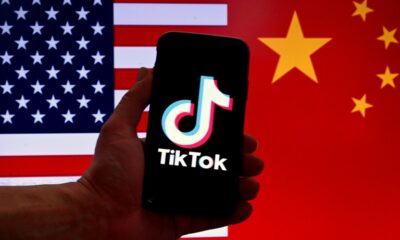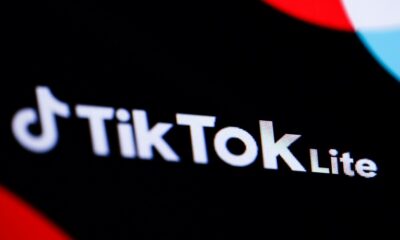The Canadian government and Google announced Wednesday a “historic” deal to support the country’s media, heading off an imminent threat by the digital giant to block news on its platform.
That threat was made in response to Ottawa’s Online News Act, which is due to come into force on December 19. Meta has also pushed back against the looming regulations.
“For more than a decade, news organizations have been disrupted by the arrival of large digital platforms like Google. In Canada, nearly 500 media outlets have closed their doors and thousands of journalists have lost their jobs,” Heritage Minister Pascale St-Onge told a news conference.
“Today, I’m announcing that we have found a path forward with Google” to implement the Online News Act, she said.
“This is a historic development. It will establish a fairer commercial relationship between digital platforms and journalism in Canada.”
Sources earlier told AFP the two sides agreed on a framework that would establish regular payments by Google to help Canadian media.
St-Onge said it would see Canadian news continue to be shared on Google’s platforms in return for the company making annual payments to Canadian news companies in the range of Can$100 million.
The amount is less than the government had estimated the compensation should be, but heads off a potential online blackout for news in Canada, where Google and Meta are the dominating platforms.
St-Onge, however, reserved the right to revisit the deal if “better agreements are struck elsewhere in the world.”
Prime Minister Justin Trudeau said this agreement “is going to resonate around the world in countries and democracies struggling with the same challenges that our media landscape in Canada is facing.”
– ‘Much-needed cash injection’ –
The agreement will give Google the option to negotiate with a single group representing all Canadian media, rather than seeking to secure one-on-one deals that it feared risked opening it up to massive payouts.
The money would then be divided up based on the number of full-time journalists employed by each publisher and broadcaster.
Google global affairs president Kent Walker said the company was “pleased that the government of Canada has committed to addressing our core issues with Bill C-18.”
As a result, he said Google “will continue sending valuable traffic to Canadian publishers.”
“This is a good outcome, for sure,” Brent Jolly, president of the Canadian Association of Journalists, told AFP.
Marla Boltman, head of the citizen group Friends, also welcomed the “much-needed cash injection into the Canadian media sector.”
However, she added that the Online News Act “will not be a panacea for protecting Canadian journalism” and that “other tools to provide support for news must be put in place.”
The Online News Act builds on similar legislation introduced in Australia and aims to support a struggling Canadian news sector that has seen a flight of advertising dollars.
Meta and Google, which together control about 80 percent of all advertising revenue in Canada, worth billions of dollars, have been accused of draining cash away from traditional news organizations while using news content for free.
Ottawa had estimated the Online News Act could cost the pair a combined Can$230 million (US$170 million) by requiring them to make commercial deals with Canadian news outlets, or face binding arbitration.
According to the draft regulations unveiled in September, it would apply to companies with global annual revenues in excess of Can$1 billion, operating a search engine or social media platform actively used by at least 20 million users and that distributes news.
That effectively means only Google and Meta would be affected.
Meta has called the bill “fundamentally flawed” and since August has blocked access in Canada to news articles on its Facebook and Instagram platforms.

 Business5 months ago
Business5 months ago
 Business4 months ago
Business4 months ago
 Events3 months ago
Events3 months ago
 People4 months ago
People4 months ago
 Events6 months ago
Events6 months ago
















